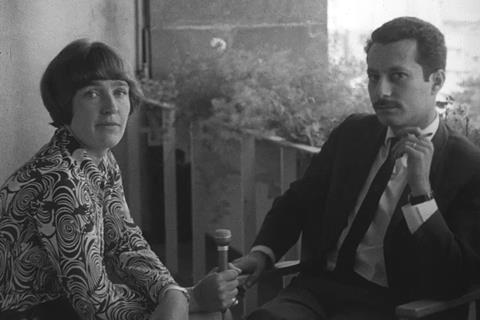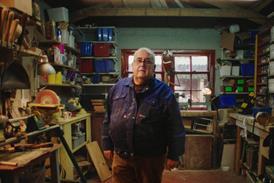
International festival heads came together at the International Documentary Festival Amsterdam (IDFA) to debate their role at a time of increasing political pressures over the films they select.
IDFA’s Finding the Compass session was facilitated by Tabitha Jackson, former director of the Sundance Film Festival and Shorenstein Fellow at the Harvard Kennedy School.
The session took place under ‘Chatham House’ rules, with the conversation held on a largely non-attributable basis.
One prominent documentary producer and former festival programmer talked of the “crisis” caused by self-censorship in documentary institutions. When one festival pulled a film because of “public safety” concerns, the producer claimed “it cost them $100,000 in security and crisis media management”.
Jackson meanwhile talked of “the definite political interference and pressure” that comes when filmmakers work with certain broadcasters especially in the US.
One festival director warned: “I fear we are coming into a time in which films are not being shown because organisations, festivals and institutions are afraid of a reaction. I am afraid we are going into a place where we take less risks. The risk [then] is of course having less voices and less important conversations.”
“It is scary in this moment what is not being made, what is not being supported,” Jackson agreed.
Festival costs
The topics discussed at the Finding the Compass also included the crippling economic costs producers often now face in showing their films at festivals.
“It costs a filmmaker an average of $5,000 in submission fees to really cover festivals properly,” one producer and former programmer said. “Festivals don’t pay screening fees typically or it’s a negotiation - but it’s a negotiation that not too many do transparently…it is very difficult for a filmmaker with a successful film on the festival circuit to navigate that circuit – [it costs] tens of thousands of dollars…it’s a highly fragmented, fractious system, very difficult for new or marginalised filmmakers to navigate.”
The producer acknowledged festivals remain “the main exhibition network for independent documentary - and vital for the exhibition and distribution of the film but economically, it’s a really broken model for independent producers. You can get a film financed but none of that financing comes with the marketing and distribution funds required to launch a film for six months to a year on the circuit.”
Meanwhile, one festival executive highlighted the “donor acceptance policy” that the institution for which they work for is now drawing up. “We are thinking through two things. One is how we can ensure donors understand what it is they can and cannot demand from us as an institution if they give us money. The other is to think, ’Is there a type of funder that is detrimental to our mission of protecting documentary culture?’ We have come to the conclusion that…we will not accept money that is derived from fossil fuels.”
Political turmoil
The session followed a symposium organised by IDFA in late August in the wake of the fractious 2023 edition of IDFA last November when several films were withdrawn in protest at the festival’s denunciation of a Palestine protest. More recently, the Toronto International Film Festival (TIFF) paused screenings of documentary Russians At War because of threats to “festival operations and public safety.”
The political turmoil has also seemingly been affecting the sales business. In the run up to the Finding the Compass session, industry executives attending IDFA had been expressing increasing disquiet about a reluctance from distributors and broadcasters to acquire even the most warmly received political films.
Esther van Messel, founder and CEO of First Hand Films, wrote an op-ed for Business Doc Europe pointing out Palestinian director Mohamed Jabaly’s Life is Beautiful, which is on First Hand Films’ slate, had won the best documentary award at Nordisk Panorama Film Festival earlier this autumn - a prestigious prize sponsored by the five Nordic public broadcasters. “So why were none of the five public Nordic broadcasters that gave the Nordic award to Life Is Beautiful interested in either co-producing or, at least, broadcasting it?,” she wrote.

Anais Clanet, head of sales outfit Reservoir Docs, expressed similar disquiet about a film on her slate, Israel Palestine on Swedish TV 1958-1989 by Swedish director Göran Hugo Olsson.
This premiered to acclaim in Venice and screened at the BFI London Film Festival and in Tokyo to strong reviews and yet no distribution deal is yet in place.. “It’s an extremely difficult period because public television does not buy a lot,” she commented.

























No comments yet